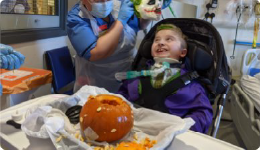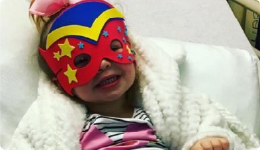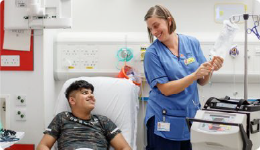Taking Part in Physical Education

 Physical Education (P.E.) is part of every child's school week. The focus is on developing basic balance, mobility and ball skills so that they can join in with sport and leisure activities in the community as they grow and develop as part of a healthy lifestyle. Lots of children and young people find P.E. challenging for different reasons. How you support a child/young person who is finding P.E. difficult depends on what they want and what they are finding most challenging. Think about your child/young person's goal - do they want to be able to join in with football at playtime or do they want to win a race a sport's day. This will help you to decide how best to meet that goal. Talk to your child/young person about P.E.:
Physical Education (P.E.) is part of every child's school week. The focus is on developing basic balance, mobility and ball skills so that they can join in with sport and leisure activities in the community as they grow and develop as part of a healthy lifestyle. Lots of children and young people find P.E. challenging for different reasons. How you support a child/young person who is finding P.E. difficult depends on what they want and what they are finding most challenging. Think about your child/young person's goal - do they want to be able to join in with football at playtime or do they want to win a race a sport's day. This will help you to decide how best to meet that goal. Talk to your child/young person about P.E.:
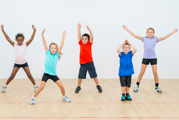 Do they like PE?
Do they like PE? - What do they find hard?
- What do they find easy?
- What would make PE more fun to them?
- Do they find getting changed for P.E. difficult?
- What about following the rules.
Strategies
- Help your child/young person to understand the importance of physical activity in terms of health and enjoyment. Put less emphasis on competition.
- Start with games and sports that are of interest to your child/young person and encourage them to participate at home, at school and in the community.
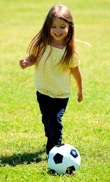 Try introducing a new sport or activity at home before they need to do this in school. This will give them time to practice, prepare and reduce any anxiety or worries.
Try introducing a new sport or activity at home before they need to do this in school. This will give them time to practice, prepare and reduce any anxiety or worries.- Break an activity down into more achievable chunks rather than focussing on it as a whole. Teach kicking before teaching ball control and then dribbling.
- Modify the activity at first. For example when practising throwing and catching:
- use a large ball, beach ball or balloon
- stand close together.
- Teach strategies like saying out loud what they are doing while they are doing it. You could help them feel the movement by having your hand over their hands and guiding them through the movement, if they are happy for you to do that.
- Talk about the rules of the new game/skill. When a child understands clearly what is required it may be easier for them to plan their movements.
- Remember to offer praise for effort and joining in even when it is hard.
- Think about clothing and shoes for P.E. too. Younger children might not need to change for P.E. but as they get older this becomes more important. Make this as easy as possible for your child/young person.
- Help teachers and coaches understand your child's strengths and challenges so they can support and encourage them to achieve success.
You can find more information and resources on our Physical Activity and Participation.




